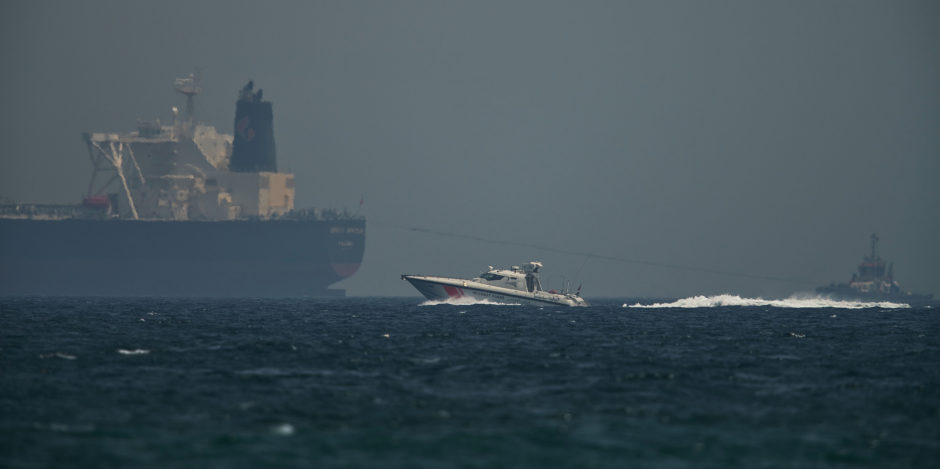
The global oil price could shoot “violently upwards” following supply disruptions in the Middle East, including attacks on a pair of oil tankers.
Two Saudi Arabian oil tankers were reportedly attacked off the coast of the United Arab Emirates over the weekend, sending the price of Brent Crude to $72 a barrel.
There were also reports of a Norwegian registered ship and another UAE-flagged ship vessel also being “sabotaged”.
Analysts Rystad Energy said the market was reacting to the risk of more supplies being lost in coming weeks.
The incident happened near the Strait of Hormuz, a crucial artery for exports with 40% of the world’s oil being traded through the waterway between Iran and the UAE.
Supplies are already tight due to drops in production from Iran and Venezuela, ongoing OPEC cuts, outages in Russia, maintenance in Kazakhstan and planned maintenance in the North Sea during the summer.
Bjornar Tonhaugen, Rystad’s head of oil market research, said: “The oil market is reacting today not because the physical market suddenly has lost more oil supplies, but because of risks that the market may lose more oil in the coming weeks and months given the heightened risk of supply disruptions from the critical Persian Gulf region.
“Raising tensions even higher, news flows suggest the latest incident might be related to the conflict between Iran and the US, which puts the Strait of Hormuz in play.”
The US announced last month that buyers of Iranian oil must stop purchases by 1 May 2019 or face sanctions.
The termination of the so-called Iran sanction waivers program prompted Iran to renew its threat to close the Strait of Hormuz.
Mr Tonhaugen added: “Iran has repeatedly threatened to ‘block’ the strait as a ‘weapon’, but due to the importance of the waterway for the global economy and the price of oil, the strait is also protected by the US Navy’s Fifth Fleet and other allies.
“Needless to say, if the strait was to be blocked or disrupted, even only for a short period of time, oil prices would react violently upwards.
“There are limited bypass options to export crude, although Saudi Arabia and the UAE do have limited pipeline capacity to shift some crude exports to the Red Sea or the Gulf of Oman.”
